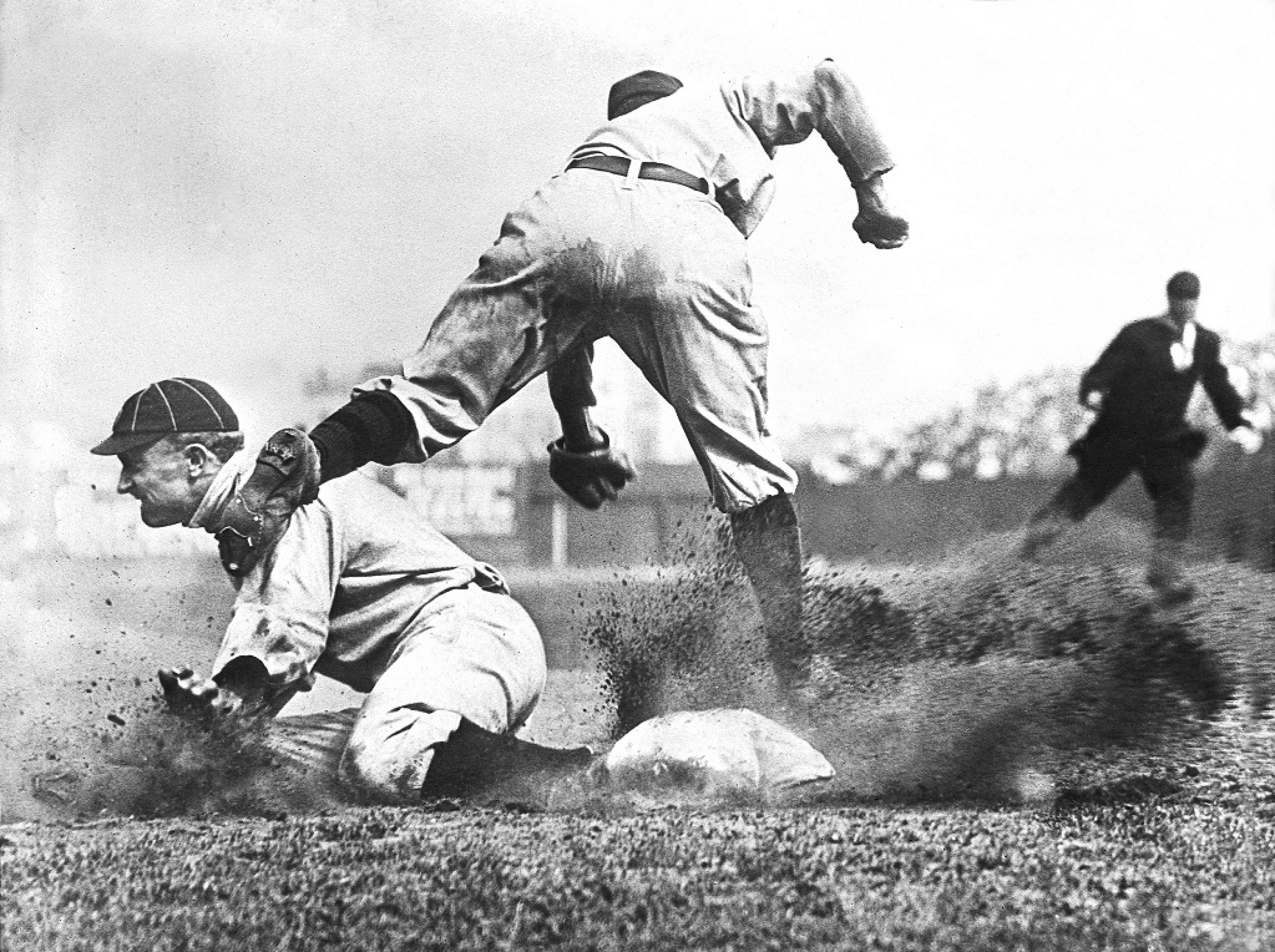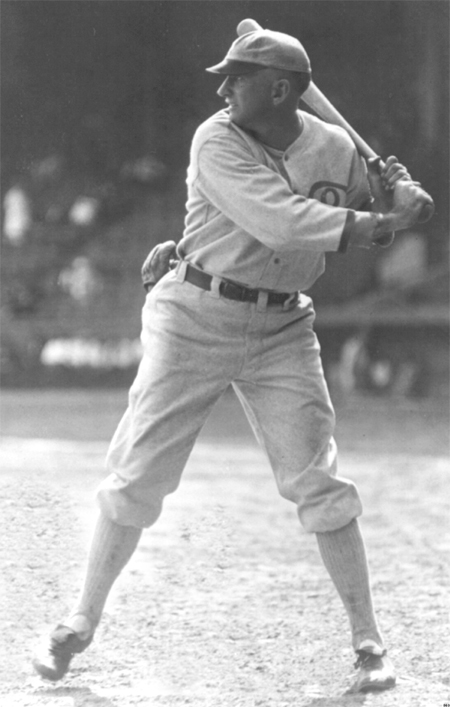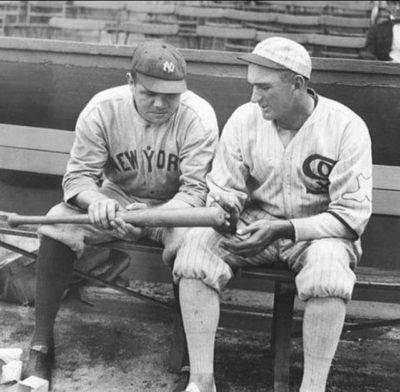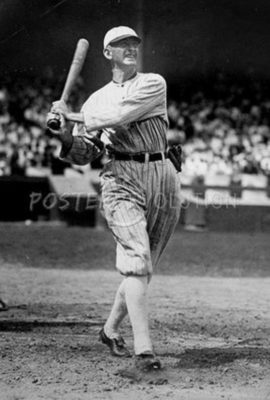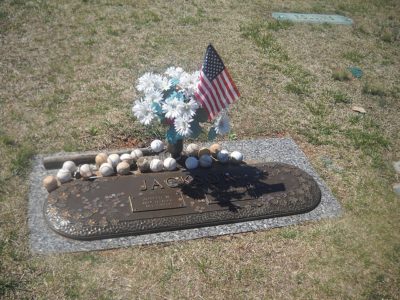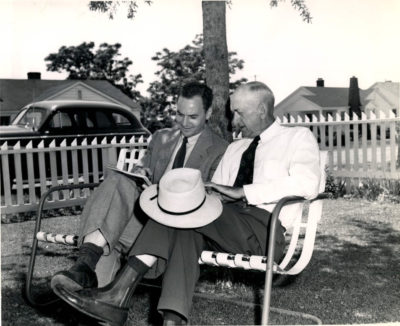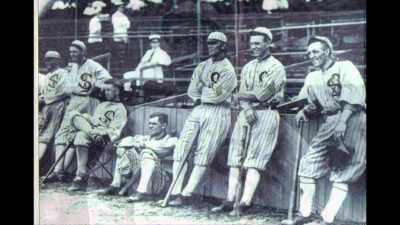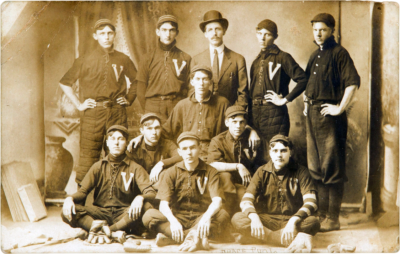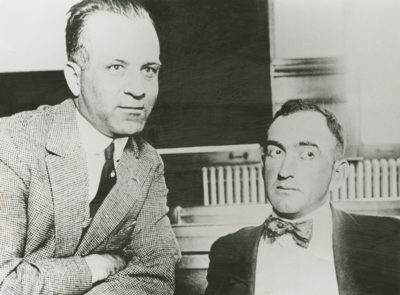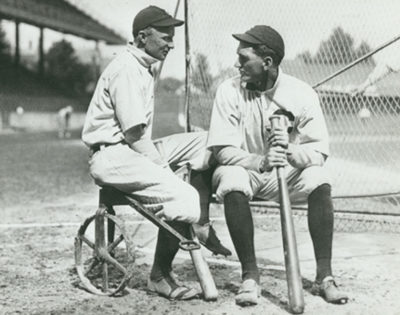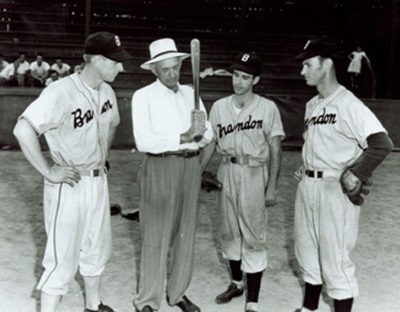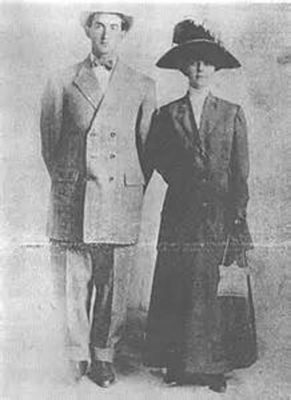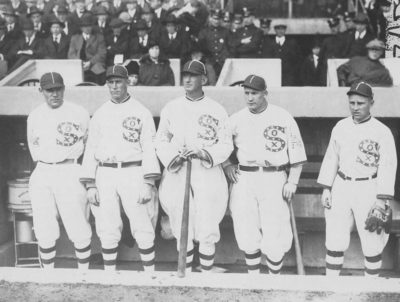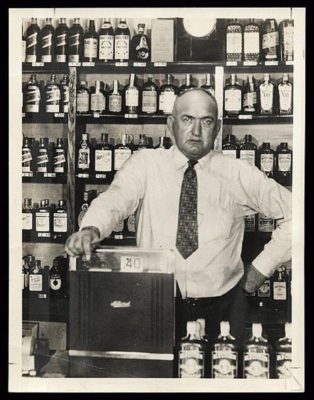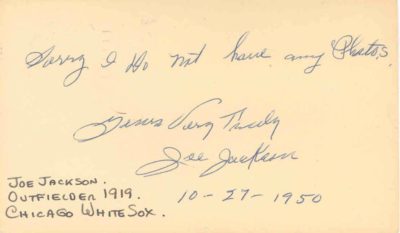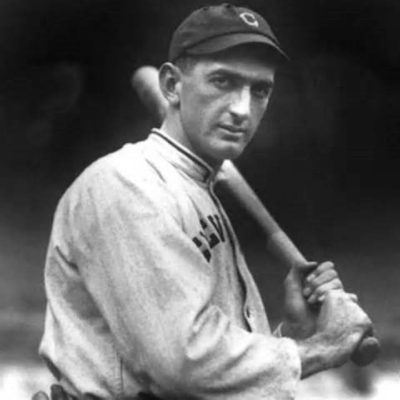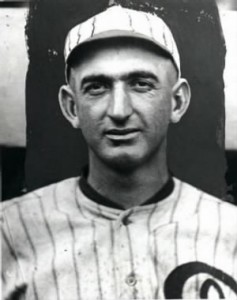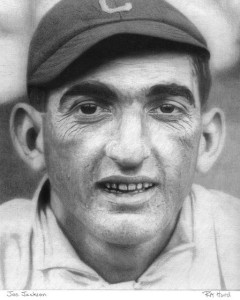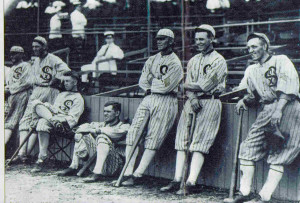Featured Panoramic Photo Above:
Classic Charles Conlon photo of Ty Cobb sliding into Jimmy Austin
Baseball History Comes Alive Now Ranked As a Top Five Website by Feedspot Among All Baseball History Websites and Blogs!
(Check out Feedspot's list of the Top 35 Baseball History websites and blogs)

Guest Submissions from Our Readers Always Welcome! Click for details
Subscribe to Old Baseball Photos and Essays for automatic updates (sign-up block found in right side-bar)
As a Free Bonus for subscribing, you’ll get instant access to my two Special Reports: Memorable World Series Moments and Gary’s Handy Dandy World Series Reference Guide!
Shoeless Joe Jackson Photo Gallery
Click on any image below to see photos in full size and to start Photo Gallery:
Spotlight on the “Eight Men Out,” Part Six: Shoeless Joe Jackson
There’s probably no topic that’s more emotionally charged when discussing the Black Sox scandal than Joe Jackson’s guilt or innocence. It’s still hotly debated almost 100 years later. The best analysis of his role comes from Gene Carney in his highly acclaimed book, Burying the Black Sox, which I highly recommend. 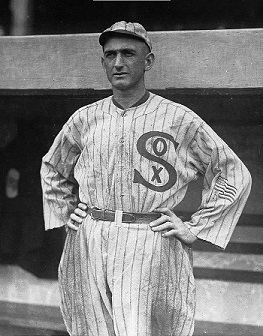
It’s true that Jackson made an original incriminating grand jury statement. This statement has probably done the most lasting damaging to his reputation; but as Mr. Carney states, this statement should be characterized as a “contradictory account of a confused witness,” neglecting to reveal that he also repeatedly stated that he played all games to win.”
In the 1924 civil trial brought by Jackson against Charles Comiskey for breach of contract and back pay, eleven of twelve jurors believed Jackson had played every game to win, and that he had not been in on the conspiracy. Unfortunately for Jackson, the jury verdict was overturned by the judge who could not overlook the contradictions with his 1920 grand jury statement.
We won’t settle his guilt or innocence here, so lets take a look at the career of this great hitter, especially his three-year span from 1911-1913.
Joe Jackson is usually remembered for his great years with the White Sox from 1915 to 1920 and for his remarkable .356 career batting average, which is still the third-highest all-time. It’s well known that Babe Ruth modeled his hitting technique after Jackson’s.
But few realize that Shoeless Joe had some truly remarkable years earlier in his career with the Cleveland Naps. His rookie year of 1911 is “off the charts” for a rookie; and his three-season totals from 1911-1913 is arguably one of the best three-year spans in baseball history.
Joe’s stats from 1911 would be amazing even if he wasn’t a rookie. He compiled 233 hits, with 126 runs, 45 doubles, 19 triples, 83 RBIs, and 41 stolen bases. His phenomenal .408 batting average set a record for rookies that still stands and we can safely say will never be broken. Incredibly, It was only good enough for second in the league behind Ty Cobb’s .420. It’s still the sixth-highest single-season total since 1901. His .468 on-base percentage led the league, and he posted a .590 slugging average. Truly a remarkable season.
It’s hard to imagine how one could improve on a season like that, but he came close in 1912. That year Jackson’s batting average “slumped” to .395, but he led the American League in hits (226), triples (26), and total bases (331). He also collected 44 doubles, 90 RBIs, 35 stolen bases, a .458 on-base percentage, and a .579 slugging percentage,
Jackson’s phenomenal run wasn’t finished. The next year, 1913, may have been the best of the three. His 197 hits, 39 doubles, and .551 slugging percentage all led the American League. He hit .373 for the year, with 71 RBIs, 17 triples, 26 stolen bases, 291 total bases, and a .460 on-base percentage. Jackson struck out only 26 times in 623 at-bats.
Over this three-year span, from 1911 to 1913, Joe Jackson’s batting average was .392, with an average per year of 218 hits, 118 runs scored, 42 doubles, 21 triples, 81 RBI, and 34 stolen bases. In 1999, he ranked number 35 on The Sporting News list of the 100 Greatest Baseball Players and was a finalist for the Major League Baseball All-Century Team. The fans voted him as the 12th-best outfielder of all-time. He also currently ranks 33rd on the all-time list for non-pitchers according to the win shares formula developed by Bill James.
Gary Livacari
Photo Credits: All from Google search
Information: Excerpts edited from Joe Jackson Wikipedia page
Check out my two books, both now available on Amazon in e-book and paperback: “Paul Pryor in His Own Words: The Life and TImes of a 20-Year Major League Umpire”and “Memorable World Series Moments.” All profits go to the Illinois Veterans Foundation
Add your name to the petition to help get Gil Hodges elected to the Hall of Fame
Cast Your Vote in Our New Poll Question: How Do You Feel About Judge Landis’ Verdict Against the “Eight Men Out”?
We are a participant in the Amazon Services LLC Associates Program, an affiliate advertising program designed to provide a means for us to earn fees by linking to Amazon.com and affiliated sites. Click here to view Amazon’s privacy policy
